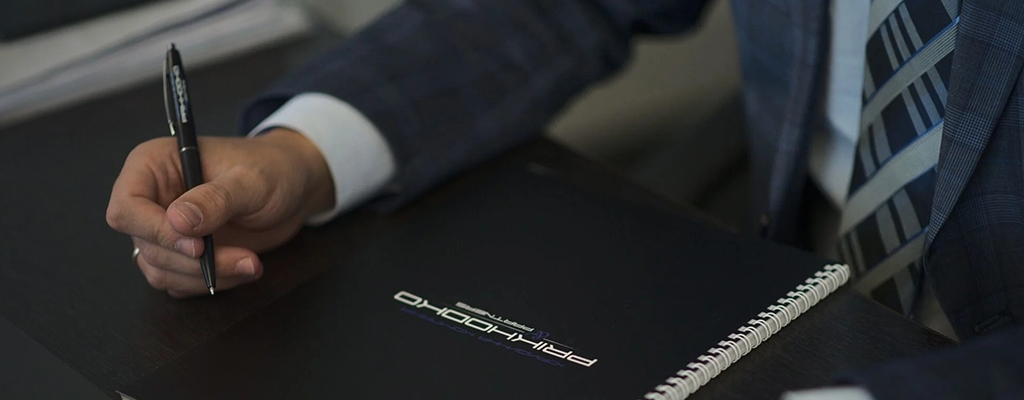
«Creative legal solutions for creative people. You create, we protect.»
Head of Commercial and Civil Law Practice
Lawyer, specialist in intellectual property. Specializes in registration and protection of copyrights, inventions, patents, trademarks, as well as development of intellectual property transfer agreements, license agreements.
Collection of receivables through court
The legendary philosopher Aristotle once said: “Justice without a trial is like a ship in dry dock.” In the world of business and finance, realities do not always correspond to ideals, and often face the problem of receivables. In order to restore justice and ensure a reliable debt collection mechanism, going to court can be a key step. Our law firm is ready to help you in this difficult process, providing effective solutions and a high level of professionalism.
Judicial collection of receivables is not just a legal aspect, it is an important element of restoring the creditor’s rights and interests. Below we will look at the key aspects of this process and provide the necessary information for the correct and successful collection of debt through the courts.
When can the receivables be collected through the court?
Debt collection through the court is a process that can be initiated in various cases when one party fails to fulfill its financial obligations to another. The main scenarios where you can use the court route to collect a receivable include:
- Breach of agreement. If the party does not fulfill its obligations specified in the written or oral agreement, the creditor can apply to the court to collect the debt. At the same time, it is important to have clearly formulated terms of the agreement and confirmation of violations.
- Non-fulfillment of financial obligations. If a debtor defaults on financial obligations, such as loans, loans or other financial obligations, litigation can be a tool to restore order and collect the debt.
- Cases of bankruptcy. In the event that a debtor declares bankruptcy, the court process can be used to collect the debt as part of the bankruptcy proceedings and to reimburse creditors.
- Decision of the arbitration court. If the dispute is resolved by arbitration, the arbitral award may be enforced through court to collect the amount owed in the award.
- Violation of legislation. If the debtor violates the law relating to financial obligations, such as illegal tax evasion, the court can recover the debt according to the law.
In any case, before going to court, it is recommended to obtain legal advice to determine the most optimal course of action and ensure successful collection of the receivable through the court.

How to do it right?
The foreclosure process requires not only knowledge of legislation, but also the ability to build a strategy correctly. Our lawyers have many years of experience in supporting similar cases, and they are ready to develop an effective action plan for debt collection in the shortest possible time.
What to do if the partner does not pay the debt even after the court decision?
If your partner does not pay the debt even after the judgment is issued, this may be grounds for further legal action. Below are the steps you can take to effectively collect a debt in this situation:
- After receiving a court decision, you can get a writ of execution, which gives the executor the right to apply to various methods of executing the court decision. This can include the seizure of property, wages, bank accounts, etc.
- Lawyers can begin the process of finding assets of the debtor that can be used to collect the debt. This can include real estate, cars, valuables and other assets.
- If the debtor shows financial incapacity, it is possible to consider the use of bankruptcy procedures to collect the debt and resolve the conflict.
- Legal pressure, including further recourse to court to impose sanctions or penalties for breach of court order, may also be necessary to make the partner understand the seriousness of the situation.
- In some cases, the possibility of negotiations or the use of mediation can help to reach an agreement and resolve the conflict without further legal action.
It is important to keep in mind that the effectiveness of taking measures may depend on the specific circumstances of the case. It is recommended to contact a qualified lawyer who can provide advice and develop a strategy for debt collection in a specific case.

How does our company help?
Our company specializes in providing a full range of legal services in the field of debt collection. We have successful experience in supporting complex cases, highly qualified legal staff and an individual approach to each client. Our goal is to provide an efficient and prompt resolution of your debt problem through the courts. Contact us for qualified assistance in restoring your rights and financial well-being. Our team is ready to work towards your success.
For consultation or calculation of the price of collection of receivables through the court – fill out the form below.
Calculate the cost of services
1 question
Are you interested in debt collection through court?
2 question
Does the amount of the debt exceed UAH 50,000?
3 question
Do you need legal assistance urgently?

Lawyer, specialist in intellectual property. Specializes in registration and protection of copyrights, inventions, patents, trademarks, as well as development of intellectual property transfer agreements, license agreements.
TOP lawyers dealing with such cases in Ukraine
How to order the service? How do we work?
Specialists of the business law department “Prykhodko and Partners” have deep knowledge of the specifics of doing business in Ukraine. We will help understand the intricacies of economic legislation, resolve corporate disputes, support M&A agreements, and protect interests during tax and other audits.
- Application
- Calling a lawyer
and defining tasks - Contract and payment
- Consultation,
case analysis, specialist work
What is the price for a lawyer's consultation and assistance?
Price for services in the "Commercial law" category:
| The name of the service | Price, UAH | Terms |
|---|---|---|
| Representation in the economic process | from 32 000 UAH | from 1 month |
| Submit to an international commercial arbitration court | from 60 000 UAH | from 1 month |
| Lawsuit for collection of debt under the supply contract | from 28 000 UAH | from 1 month |
| Sue the buyer’s company in Ukraine | from 32 000 UAH | from 1 month |
| A lawyer in a business process | from 8 000 UAH | from 1 month |
| Collection of receivables through court | from 32 000 UAH | from 1 month |
| Filing a claim to the commercial court | from 32 000 UAH | from 1 month |
| Recognizing business contracts as invalid | from 32 000 UAH | from 1 month |
| Collect funds (debt) from the Ukrainian company | from 32 000 UAH | from 1 month |
| Non-fulfillment of the terms of the contract for the provision of services | from 32 000 UAH | from 1 month |
![]() 2 000 - 60 000 UAH The price is valid for July 2024
2 000 - 60 000 UAH The price is valid for July 2024
Is a subscriber form of service possible to quickly resolve issues as they arise?
Yes, of course, we take companies for permanent support.
The subscription form of service allows you to receive a full range of legal services on an ongoing basis for a fixed monthly fee.
Our lawyers will accompany all economic legal relations of your company: from drawing up contracts and solving corporate issues to representing interests during inspections by regulatory bodies and in court disputes.
We have very flexible pricing, so contact us and we will discuss your specific case.
You may also need:
Commercial law
Business protection: lawyer
Read moreCommercial law
Sue the company
Read moreCommercial law
Sue the buyer’s company in Ukraine
Read moreCorporate law
Mediation of corporate disputes
Read moreCorporate law
Assessment of corporate rights
Read moreCorporate law
Corporate agreement between the members of the LLC
Read moreLawyer services
Corporate attorney
Read moreCommercial law
Corporate disputes
Read moreArticles on the topic:
call back
during the day








